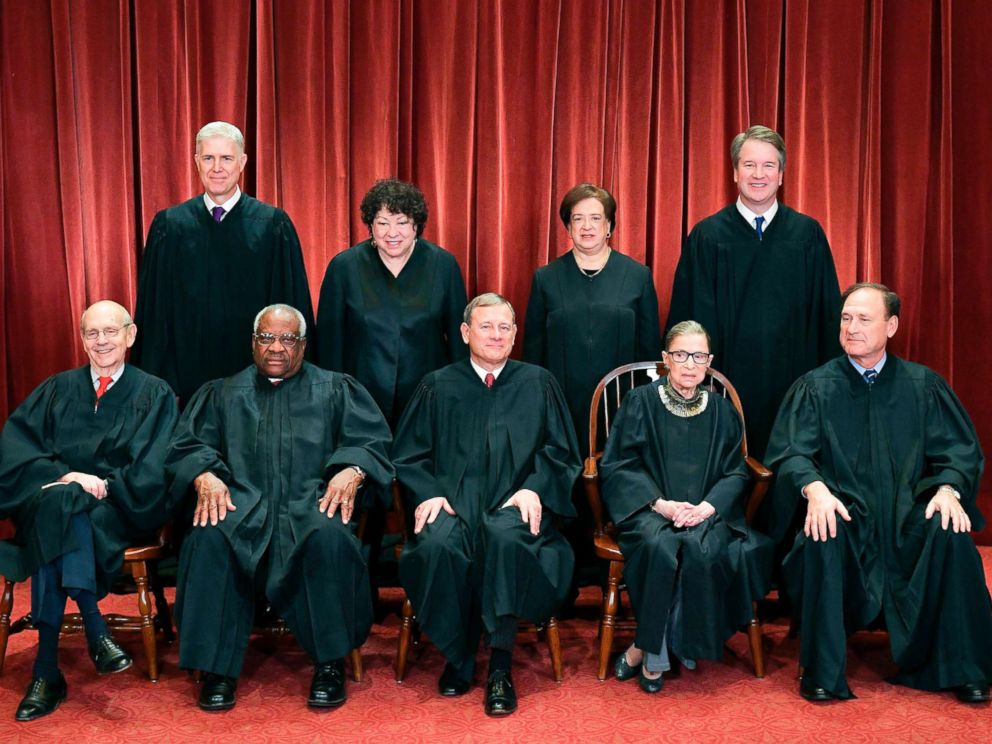As we come to the threshold of October, we are reminded that the month has frights to deliver even before Halloween, for in another week the Supreme Court will begin a new year with its first meeting for the Fall term. No institution has come close to its position as an Engine in remaking what passes as our “culture.”
On the matter of race, that remaking has been largely for the good, but on the issues of human life and sexuality – on the way we are understood as “human persons” and the bearers of rights – the Court has been a machine for deep moral inversion.
A case testing that very point anew will be coming before the Court in just another week. On the second day of the Court’s new term, the justices will be taking up the case of Harris Funeral Homes v. Equal Employment Opportunity Commission. The Harris Homes in Michigan have been in the hands of the same family for five generations, but certain tremors were set off by one Anthony Stephens, who had been hired as a “funeral director” in 2007.
A person in that position is slated for a key role in guiding families during moments of grief. That situation suddenly deepened when Stephens announced in 2013 that he had been experiencing “gender dysphoria.” Despite the fact that he was married (by which I mean: to a woman), he was convinced that he was now, in his truer identity, a woman, and he wished to present himself, in his clothing and appearance, as a woman.
Stephens insisted that he was respecting the dress code of the firm by dressing in the mode of women, but that was hardly the issue. Stephens was fired, and, of course, he brought suit for “discrimination” on the basis of sex under Title VII of the Civil Rights Act of 1964. His claim was sustained by a federal district court, which bought on so fully to his premises that it persistently referred to him by using female pronouns.
The case has been brought on appeal to the Supreme Court, and of course the lawyers and judges will move first to consider the statute under which the claim of wrongdoing was made. When Congress barred discrimination based on sex in 1964, is it even faintly plausible to assume that it meant to cover, say, males barred from women’s bathrooms or locker rooms even though they felt strongly that they were women?
It is far more sensible to assume, as the lawyers for Harris homes argue, that “sex discrimination meant differential [and adverse] treatment based on a person’s biological sex, something fixed and objectively ascertained based on chromosomes and reproductive anatomy.”
True enough. But when the argument is cast over the meaning of words in the statute, that is still a different question from: what does “sex” truly mean, regardless of the way it was understood by legislators in 1964?

We should not be surprised then to hear lawyers on the side of Stephens come to argue that an understanding informed by the latest contributions in “gender theory” would give us a more expansive view of what it means to suffer mistreatment on account of one’s “sex.”
At that moment, something needs to be said running much deeper, and as it happens, in this case, it has been said, decisively – and beautifully. It was said in a “Scholars Brief” written by Michael Hanby, David Crawford, and Maggie McCarthy; a brief that deserves to be read because it is so gracefully written and compellingly argued.
As the writers recognize, what is really as stake in this case is a matter “inherently philosophical, indeed metaphysical,” for “it concerns truths about the very nature of things.” Is there an objective truth about one’s body or is the body to be understood “according to one’s feelings or choice, rather than organically or naturally”? To make ourselves suggestible to that view would draw into question “the reality of men and women, suggesting that what makes them to be such is only their feeling about themselves, or the cultural construction of those feelings.”
A child has a natural sense of who he or she is, and who are the people filling the scene, and parents and grandparents. And yet suddenly we have codified a “philosophical anthropology” that calls the whole scheme into question as “artificial and arbitrary, rather than natural.”
Stephens’s claim, as the writers observe, “is not that he has the right to dress as he pleases, but rather that he in fact is a woman and, on that basis, has a right to be treated as such.”
Onlookers may be beguiled by the argument that Stephens seeks only to live by respecting his own understanding of himself. But that is deeply false, for entailed in his claim is the “legally enforced affirmation of his claimed identity by all those around him in the work environment.” That is to say, everyone around him will be compelled to confess their acceptance of his right to alter his sexual person, or they could be cited themselves for contributing to a “hostile work environment,” and creating legal dangers for their employers.
These are the radiating implications that continue to surprise lawyers and citizens because it still comes as news to them how the logic of “right and wrong” is given a powerful resonance when stamped as a compelling truth in the law.















